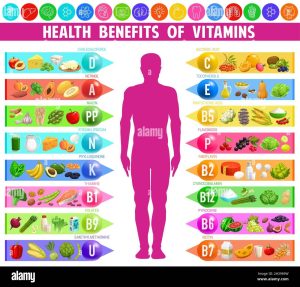
The Link Between Diet and Overall Health
Introduction
Our overall health is influenced by various factors, and one of the most significant contributors is our diet. The food we consume plays a crucial role in maintaining a healthy body and mind. This article explores the link between diet and overall health, and how making conscious choices about what we eat can lead to a better quality of life.
What Is a Healthy Diet?
A healthy diet consists of a balanced combination of macronutrients, including carbohydrates, proteins, and fats, as well as micronutrients such as vitamins and minerals. It emphasizes the consumption of fruits, vegetables, whole grains, lean proteins, and healthy fats while limiting processed foods, sugars, and unhealthy fats.
The Impact on Physical Health
A poor diet lacking essential nutrients can lead to various physical health problems. Consuming excessive amounts of saturated fats, trans fats, and cholesterol can increase the risk of heart disease and stroke. Conversely, a diet rich in fruits, vegetables, and whole grains can lower blood pressure and reduce the risk of cardiovascular diseases.
Similarly, an inadequate intake of vitamins and minerals can weaken the immune system, making us more susceptible to infections, while a diet rich in these essential nutrients can boost our immune response and help prevent illnesses.
The Connection with Mental Health
What we eat also has a significant impact on our mental health. Studies have shown that a diet high in refined sugars and processed foods can contribute to an increased risk of depression and anxiety. On the other hand, a diet rich in omega-3 fatty acids, antioxidants, and vitamins can support brain health and reduce the risk of mental health disorders.
Furthermore, certain foods have been linked to improved cognitive function and enhanced memory. For example, berries, walnuts, and fish contain compounds that promote brain health and protect against age-related decline.
Weight Management
Another important aspect of diet and overall health is weight management. Consuming excessive calories and indulging in unhealthy foods can lead to weight gain and obesity. Obesity is associated with numerous health problems, including diabetes, heart disease, and certain types of cancer.
A well-balanced diet that includes appropriate portion sizes and mindful eating can help maintain a healthy weight and prevent these obesity-related conditions. It is important to focus on nutrient-dense foods that provide essential nutrients without excess calories.
Tips for a Healthy Diet
While the significance of a healthy diet is undeniable, it can be challenging to make the necessary changes. Here are some tips to help you transition to a healthier eating plan:
Include a variety of fruits and vegetables in your meals.
Choose whole grains over refined grains.
Opt for lean proteins such as poultry, fish, and legumes.
Incorporate healthy fats from sources like avocados, nuts, and olive oil.
Limit the consumption of sugary drinks and processed foods.
Drink plenty of water throughout the day.
Practice portion control and be mindful of your eating habits.
Engage in regular physical activity to complement your diet.
Conclusion
Our diet has a profound impact on our overall health, influencing both our physical and mental well-being. By adopting a balanced diet that is rich in essential nutrients and avoiding unhealthy choices, we can improve our longevity, prevent chronic diseases, and enhance our quality of life. Making conscious choices about what we eat is an investment in our health that yields lifelong benefits.

